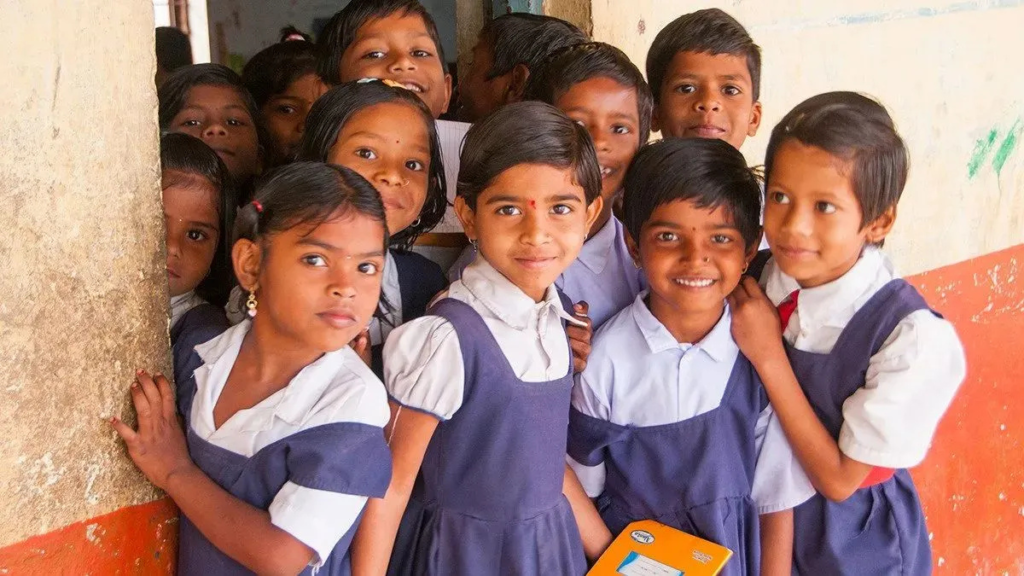School education in India is facing a crisis that threatens not just the future of millions of children but also the nation’s political stability, social harmony, and economic growth. Despite more than ninety percent enrolment in Classes one to eight and a favourable student to teacher ratio of around twenty two to one in public schools, actual learning levels are extremely low. While nearly ninety percent of students clear Class ten board exams, only a small percentage of them possess the basic proficiency required in mathematics, science, and language skills. In government schools, it is barely ten percent and in private schools, about twenty percent.
This is not due to a lack of investment. Most state governments spend between sixty thousand and one lakh twenty thousand rupees per child each year. Families, too, are investing heavily in private education, often spending beyond their means in the hope of a better future for their children. And yet, the outcomes are dismal. The problem is not only in government schools. Even private schools show similar trends because they are part of the same broken system of rote learning and poor assessment.
To understand how this collapse happened, one can look at the example of Andhra Pradesh including present day Telangana. Before nineteen seventy one, schools were subject to regular inspections, students took meaningful exams throughout the year, and local governments had a strong role in school management. Parents and communities were involved because most children attended government schools. Children learned reading, writing, basic arithmetic, science, and reasoning effectively.
But in nineteen seventy one, a policy shift declared that exams would no longer matter for promotion from one grade to the next, except in Class seven and Class ten. Earlier, children who were falling behind would be offered special classes, and only those with extremely low learning levels would be detained. After the change, exams became meaningless, leading to a steady decline in learning levels. As Lord Kelvin once said, “If you cannot measure something, you cannot improve it.”

Later developments made things worse. In nineteen eighty one, the government removed school management from local bodies and brought teachers directly under state control. Accountability dropped significantly. Then in two thousand six, the Class seven board examination was scrapped altogether. Every student advanced through the system regardless of actual learning.
As learning outcomes declined, the pressure to pass board exams led to widespread memorisation and mass copying. Teachers and students relied on predictable question papers and rehearsed answers. Marks were inflated and pass percentages increased, but real understanding remained poor.
This situation created a rush toward private schools, especially those offering English medium instruction. As the middle class exited the public school system, schools catering to low income families became neglected. However, private schools were also following the same state curricula and flawed assessment methods, leading to only marginal improvement over government schools.
Now is the time to act. First, we must accept the truth of this failure, despite the massive spending on education. Better infrastructure is helpful but it is not enough. The real issue lies in the way we assess students and hold schools accountable. If we introduce a stress free, skill based, and concept oriented assessment system that measures real learning, everyone involved will be motivated to do better.
Most states already have favourable teacher to student ratios. A small portion of teachers can be given the responsibility of inspecting and guiding schools on a regular basis. At the same time, we must bring back the involvement of local communities. Parents, respected teachers, successful alumni, and local leaders should all have a role in monitoring and improving educational outcomes.
Education is the foundation of a strong and stable country. With two thirds of our population in the working age group, we have a limited window to benefit from our demographic dividend. If we equip our children with the right skills, we can accelerate economic growth and secure a brighter future for all. If we do not, we risk undermining everything we have built so far.
ALSO READ
RTE Act Violation Triggers Uproar as Students Held Back in Classes 6 and 7
DU TOPPER POST VIRAL: Sparks Debate on Skills vs. Marks
Student or teacher focus? The alternative pedagogy of the Upanishad
Pingback: Empowering Through Education: 40+ Success Stories from Patwa Toli’s Remarkable Rise from Weaving Village to IIT Powerhouse -